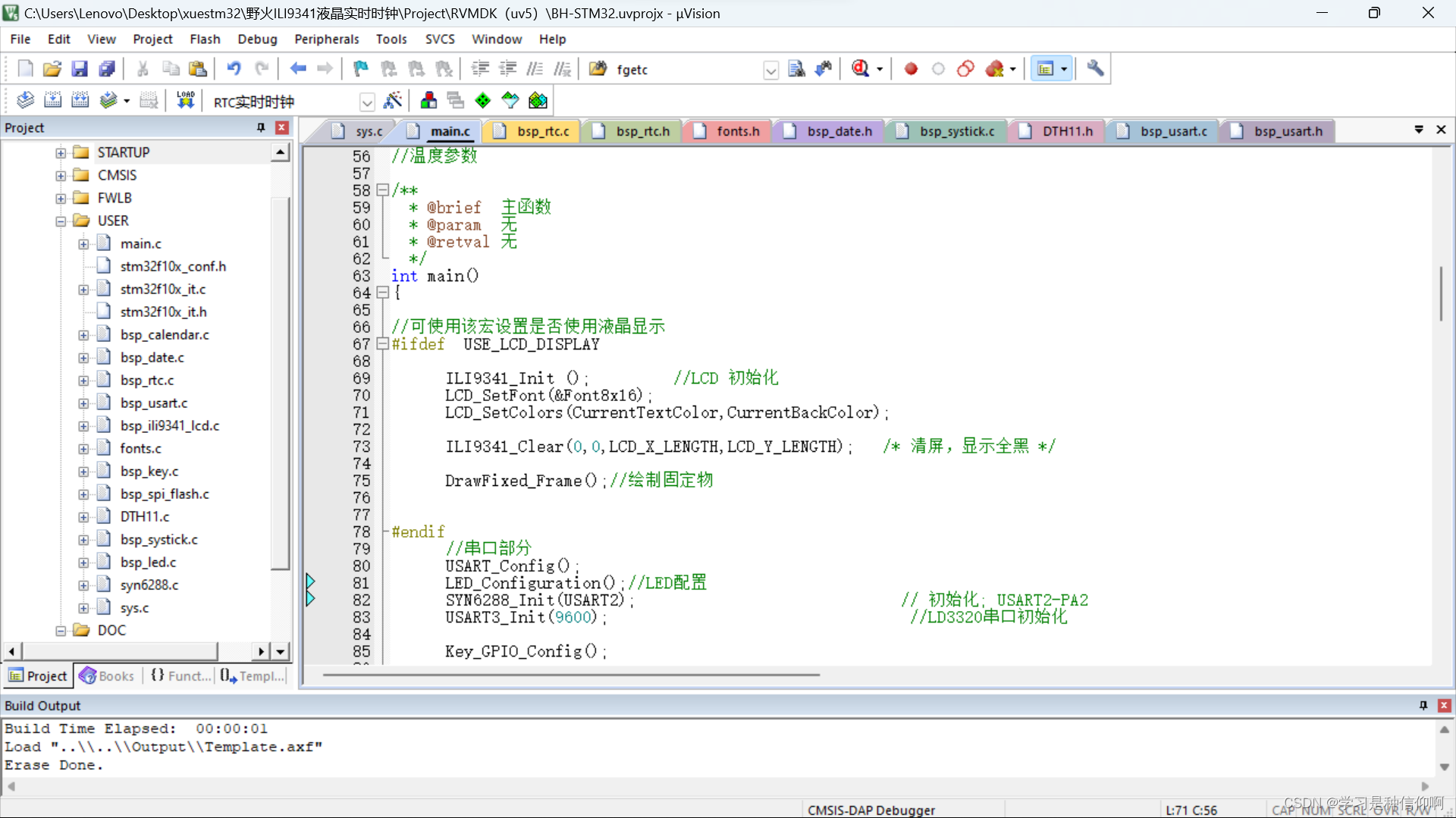【混合编程】c++中调用python脚本
C++调用Pythonpython代码:#!/usr/bin/python#Filename:TestModule.pydef Hello(s):print ("Hello World")print(s)def Add(a, b):print('a=', a)print ('b=', b)return a + bclass Test:def __init__(self):print("Init")
·
C++调用Python
python代码:
#!/usr/bin/python
#Filename:TestModule.py
def Hello(s):
print ("Hello World")
print(s)
def Add(a, b):
print('a=', a)
print ('b=', b)
return a + b
class Test:
def __init__(self):
print("Init")
def SayHello(self, name):
print ("Hello,", name)
return name
c++代码:
#include<iostream>
#include<Python.h>
using namespace std;
int main(int argc, char* argv[])
{
//初始化python
Py_Initialize();
//直接运行python代码
PyRun_SimpleString("print('----------Python Start')");
//引入当前路径,否则下面模块不能正常导入
PyRun_SimpleString("import sys");
PyRun_SimpleString("sys.path.append('./')");
//引入模块
PyRun_SimpleString("print('----------PyImport_ImportModule')");
PyObject *pModule = PyImport_ImportModule("TestModule");
//获取模块字典属性
PyRun_SimpleString("print('----------PyModule_GetDict')");
PyObject *pDict = PyModule_GetDict(pModule);
//直接获取模块中的函数
PyRun_SimpleString("print('----------PyObject_GetAttrString')");
PyObject *pFunc = PyObject_GetAttrString(pModule, "Hello");
//参数类型转换,传递一个字符串。将c/c++类型的字符串转换为python类型,元组中的python类型查看python文档
PyRun_SimpleString("print('----------Py_BuildValue')");
PyObject *pArg = Py_BuildValue("(s)", "Hello Charity");
PyRun_SimpleString("print('----------PyEval_CallObject')");
//调用直接获得的函数,并传递参数
PyEval_CallObject(pFunc, pArg);
//从字典属性中获取函数
PyRun_SimpleString("print('----------PyDict_GetItemString Add function')");
pFunc = PyDict_GetItemString(pDict, "Add");
//参数类型转换,传递两个整型参数
pArg = Py_BuildValue("(i, i)", 1, 2);
//调用函数,并得到python类型的返回值
PyObject *result = PyEval_CallObject(pFunc, pArg);
//c用来保存c/c++类型的返回值
int c;
//将python类型的返回值转换为c/c++类型
PyArg_Parse(result, "i", &c);
//输出返回值
printf("a+b=%d\n", c);
//通过字典属性获取模块中的类
PyRun_SimpleString("print('----------PyDict_GetItemString test class')");
PyObject *pClass = PyDict_GetItemString(pDict, "Test");
//实例化获取的类
PyRun_SimpleString("print('----------PyInstanceMethod_New test class')");
PyObject *pInstance = PyInstanceMethod_New(pClass);
//调用类的方法
PyRun_SimpleString("print('----------PyObject_CallMethod SayHello')");
result = PyObject_CallMethod(pInstance, "SayHello", "(Os)", pInstance, "Charity");
//输出返回值
char* name=NULL;
PyRun_SimpleString("print('----------PyArg_Parse')");
PyArg_Parse(result, "s", &name);
printf("%s\n", name);
PyRun_SimpleString("print('Python End')");
//释放python
Py_Finalize();
getchar();
return 0;
}
编译:
(依据自己系统python路径修改)
g++ $(/usr/bin/python3.5-config --cflags) pythonwithcpp.cpp $(/usr/bin/python3.5-config --ldflags)) -lpython3.5
编译2:
若是使用anaconda中的python解释器:
g++ $(/home/hove/anaconda3/envs/evo/bin/python3.8-config --cflags) pythonwithcpp.cpp -o b.out $(/home/hove/anaconda3/envs/evo/bin/python3.8-config --ldflags) -lpython3.8
同时导入anaconda的动态库:
export LD_LIBRARY_PATH=$LD_LIBRARY_PATH:/home/hove/anaconda3/envs/evo/lib
运行结果:
./a.out
----------Python Start
----------PyImport_ImportModule
----------PyModule_GetDict
----------PyObject_GetAttrString
----------Py_BuildValue
----------PyEval_CallObject
Hello World
Hello Charity
----------PyDict_GetItemString Add function
a= 1
b= 2
a+b=3
----------PyDict_GetItemString test class
----------PyInstanceMethod_New test class
----------PyObject_CallMethod SayHello
Hello, Charity
----------PyArg_Parse
Charity
Python End
参考:
- https://docs.python.org/3/extending/embedding.html
- https://www.cnblogs.com/xuyuan77/p/8419442.html
- https://stackoverflow.com/questions/43333207/python-error-while-loading-shared-libraries-libpython3-4m-so-1-0-cannot-open
- 官方文档:https://docs.python.org/3/c-api/index.html
更多推荐
 已为社区贡献2条内容
已为社区贡献2条内容








所有评论(0)